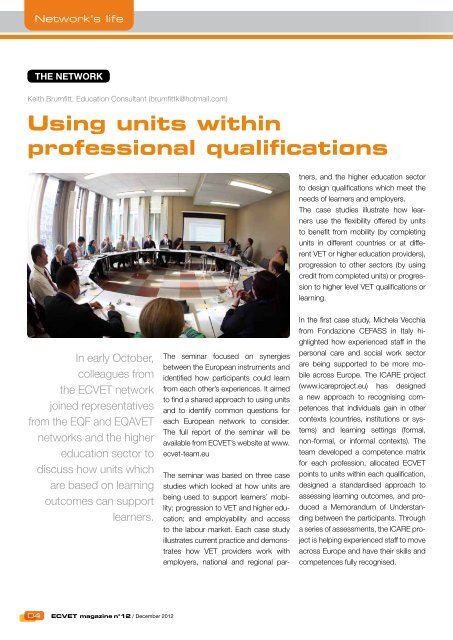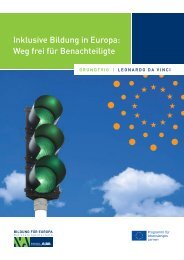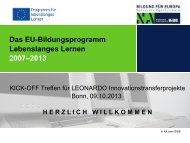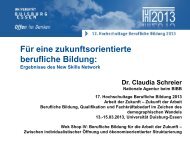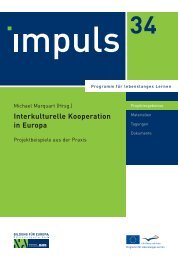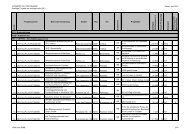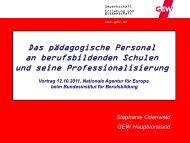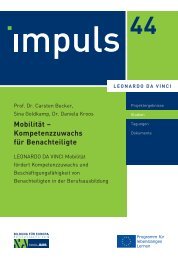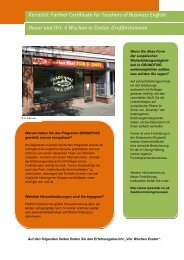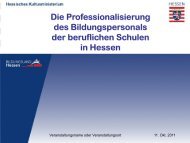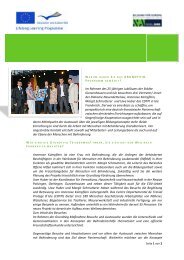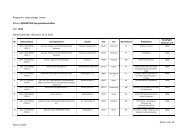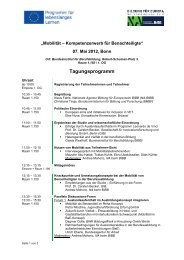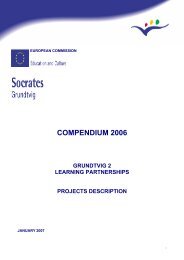Create successful ePaper yourself
Turn your PDF publications into a flip-book with our unique Google optimized e-Paper software.
Network's life<br />
THE NETWORK<br />
Keith Brumfitt, Education Consultant (brumfittk@hotmail.com)<br />
Using units within<br />
professional qualifications<br />
In early October,<br />
colleagues from<br />
the ECVET network<br />
joined representatives<br />
from the EQF and EQAVET<br />
networks and the higher<br />
education sector to<br />
discuss how units which<br />
are based on learning<br />
outcomes can support<br />
learners.<br />
04 ECVET magazine n°12 / December 2012<br />
The seminar focused on synergies<br />
between the European instruments and<br />
identified how participants could learn<br />
from each other’s experiences. It aimed<br />
to find a shared approach to using units<br />
and to identify common questions for<br />
each European network to consider.<br />
The full report of the seminar will be<br />
available from ECVET’s website at <strong>www</strong>.<br />
<strong>ecvet</strong>-<strong>team</strong>.<strong>eu</strong><br />
The seminar was based on three case<br />
studies which looked at how units are<br />
being used to support learners’ mobility;<br />
progression to VET and higher education;<br />
and employability and access<br />
to the labour market. Each case study<br />
illustrates current practice and demonstrates<br />
how VET providers work with<br />
employers, national and regional par-<br />
tners, and the higher education sector<br />
to design qualifications which meet the<br />
needs of learners and employers.<br />
The case studies illustrate how learners<br />
use the flexibility offered by units<br />
to benefit from mobility (by completing<br />
units in different countries or at different<br />
VET or higher education providers),<br />
progression to other sectors (by using<br />
credit from completed units) or progression<br />
to higher level VET qualifications or<br />
learning.<br />
In the first case study, Michela Vecchia<br />
from Fondazione CEFASS in Italy highlighted<br />
how experienced staff in the<br />
personal care and social work sector<br />
are being supported to be more mobile<br />
across Europe. The ICARE project<br />
(<strong>www</strong>.icareproject.<strong>eu</strong>) has designed<br />
a new approach to recognising competences<br />
that individuals gain in other<br />
contexts (countries, institutions or systems)<br />
and learning settings (formal,<br />
non-formal, or informal contexts). The<br />
<strong>team</strong> developed a competence matrix<br />
for each profession, allocated ECVET<br />
points to units within each qualification,<br />
designed a standardised approach to<br />
assessing learning outcomes, and produced<br />
a Memorandum of Understanding<br />
between the participants. Through<br />
a series of assessments, the ICARE project<br />
is helping experienced staff to move<br />
across Europe and have their skills and<br />
competences fully recognised.


